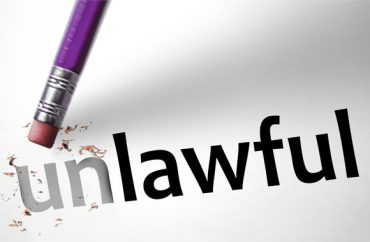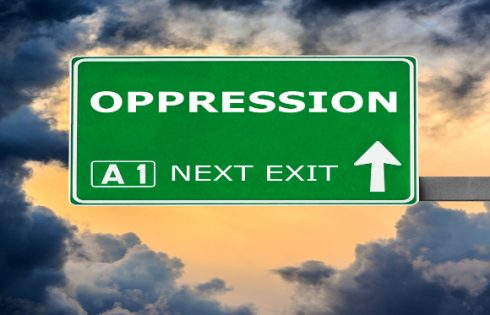
Jurist Richard Posner admits it
One of the lesser known reasons to follow Eugene Volokh, the First Amendment expert at UCLA’s law school, is the “Short Circuit” feature he posts occasionally.
It’s a digest of bite-size summaries of recent decisions in the federal appellate courts you’re likely to miss otherwise. (Short Circuit is actually written by John Ross at the Institute for Justice, and it has an associated podcast.)
Here’s what caught my eye today when I was skimming Short Circuit:
Adjunct prof alleges South Bend, Ind., community college denied her promotions because she is a lesbian. Can she sue the school? The full Seventh Circuit says yes; discrimination on the basis of sexual orientation is prohibited by Title VII. Dissent: Congress plainly did not intend to prohibit such discrimination, and it’s for Congress, not the courts, to revise the statute.
It’s a long ruling, if you want to read it yourself. It’s an en banc ruling, which means every jurist heard arguments and voted, not the customary three-judge panel, showing the relative importance of the new precedent in the 7th Circuit. (The Supreme Court has never weighed in on this issue.)
If you are more interested in what this says about how the judiciary sees its role, check the analysis by another law professor, Glenn “Instapundit” Reynolds of the University of Tennessee-Knoxville.
Reynolds writes about the ruling – in particular the concurrence by Judge Richard Posner, the best-known member of the 7th Circuit – in his USA Today column:
U.S. Court of Appeals Judge Richard Posner has changed my mind. Up until now, I was dubious as to the notion of electing Supreme Court justices, and had never really considered electing federal Court of Appeals judges. But after reading his latest, I think that I’m now in favor of both.
MORE: Richard Posner trashes Constitution, calls Scalia tributes ‘absurd’
Reynolds isn’t bothered in and of itself with the ruling’s holding that Title VII covers sexual orientation, despite the clear wording of the 1964 Civil Rights Act that it prohibits discrimination based on “sex.” As in, being a man or a woman.
He is stunned that Posner, also a University of Chicago lecturer, shows explicit and utter contempt for Congress in his concurring opinion:
According to Posner, although the drafters of the Civil Rights Act certainly had no intention of protecting gays and lesbians, and certainly wouldn’t have understood the term “sex” to incorporate sexual preference, it is appropriate for courts to “update” the statute in light of modern mores, by interpreting it not as it was written, but as the needs of modern society dictate: “I would prefer to see us acknowledge openly that today we, who are judges rather than members of Congress, are imposing on a half-century-old statute a meaning of ‘sex discrimination’ that the Congress that enacted it would not have accepted. . . . The position of a woman discriminated against on account of being a lesbian is thus analogous to a woman’s being discriminated against on account of being a woman. That woman didn’t choose to be a woman; the lesbian didn’t choose to be a lesbian. I don’t see why firing a lesbian because she is in the subset of women who are lesbian should be thought any less a form of sex discrimination than firing a woman because she’s a woman.”
Adds Posner: “We should not leave the impression that we are merely the obedient servants of the 88th Congress (1963– 1965), carrying out their wishes. We are not. We are taking advantage of what the last half century has taught.”
Judge Richard Posner is either a genius or out of his mind. I'm leaning towards the latter. https://t.co/xIC1UMMvBP pic.twitter.com/QCaLiESGMj
— 🇺🇸Lionel🇺🇸 (@LionelMedia) June 30, 2016
Posner is making a pretty giant leap into the murkiness of sexual orientation – perhaps he’s a fan of Lady Gaga and “Born This Way” – by authoritatively proclaiming that women never choose to be sexually attracted to women, and thus orientation is an immutable category like race or sex. Plenty of lesbians seem to have adopted the orientation after they had children with men.
But Reynolds is less interested in debating genetics than praising Posner for being honest about how judges often treat the law:
Judges do what he describes all the time, they just usually cloak it behind a smokescreen of legalism that makes it at least somewhat deniable. Indeed, that’s basically what the majority opinion does.
But the job of updating statutes is the job of legislators, not judges, and what legislators have over judges in that regard is that they are elected. Judges can — from within their insular world of life-tenure employment and elite-legal/academic socialization — guess at what contemporary social mores are. Legislators, by virtue of standing regularly for election, don’t have to guess.
The professor suggests that in keeping with Posner’s logic, every federal court above trial judge should be forced to stand for election – retention elections for appellate jurists like Posner after they complete a 9-year appointment, and elections to start for Supreme Court justices, followed by retention votes:
It’s true that this would work a major change on the federal judiciary — even greater than Posner’s court has wrought on the Civil Rights Act, in fact. But it’s consistent with the changing mores that have seen most states adopt some sort of election process for judicial selection, leaving the federal judiciary’s undemocratic character an outdated relic of an earlier, more elitist era.
The dissent by three judges seems to anticipate that views like Reynolds will become more common in the public – and the legislatures that depend on them for elected office – if courts continue to ignore the plain words of statutes as they were understood when they were written:
Any case heard by the full court is important. This one is momentous. All the more reason to pay careful attention to the limits on the court’s role. The question before the en banc court is one of statutory interpretation. The majority deploys a judge-empowering, common-law decision method that leaves a great deal of room for judicial discretion. So does Judge Posner in his concurrence. Neither is faithful to the statutory text, read fairly, as a reasonable person would have understood it when it was adopted. The result is a statutory amendment courtesy of unelected judges. Judge Posner admits this; he embraces and argues for this conception of judicial power. The majority does not, preferring instead to smuggle in the statutory amendment under cover of an aggressive reading of loosely related Supreme Court precedents. Either way, the result is the same: the circumvention of the legislative process by which the people govern themselves. …
We are not authorized to infuse the text with a new or unconventional meaning or to update it to respond to changed social, economic, or political conditions.
Now that Neil Gorsuch has been sworn in as the newest justice on the Supreme Court, at least it’s more likely that the high court will go on fewer Posnerian flights of fancy when it comes to statutory interpretation.
MORE: Richard Posner’s son, UChicago law professor, loves speech codes
Like The College Fix on Facebook / Follow us on Twitter
IMAGE: klublu/Shutterstock
Like The College Fix on Facebook / Follow us on Twitter







Please join the conversation about our stories on Facebook, Twitter, Instagram, Reddit, MeWe, Rumble, Gab, Minds and Gettr.